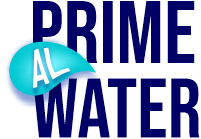The Importance of Clean Drinking Water
Clean drinking water is essential for our survival and well-being. It is a basic human right, yet millions of people around the world still do not have access to it. In this article, we will explore the importance of clean drinking water and why it is vital for our health and the environment.
Introduction
Water is a crucial component of life, and clean drinking water is vital for maintaining good health. According to the World Health Organization (WHO), approximately 2.2 billion people worldwide lack access to safe drinking water, leading to numerous water-borne illnesses and deaths every year. In this article, we will examine why clean drinking water is important, the consequences of consuming contaminated water, and ways to ensure access to safe drinking water for all.
The Importance of Clean Drinking Water
Hydration and Health
Drinking enough water is essential for our bodies to function correctly. Water regulates body temperature, lubricates joints, and helps with digestion. Dehydration can lead to headaches, fatigue, and even kidney failure. However, consuming contaminated water can also have severe health consequences, such as cholera, typhoid fever, and diarrhea.
Environmental Impact
Water pollution has a significant impact on the environment. Contaminants in water can harm aquatic life, disrupt ecosystems, and contaminate soil. Agricultural activities, industrial processes, and sewage discharge are some of the main contributors to water pollution. Clean drinking water is essential for maintaining the health of our environment and preserving natural resources.
Economic and Social Benefits
Access to clean drinking water has numerous economic and social benefits. It can improve public health, reduce healthcare costs, and increase productivity. Additionally, access to safe drinking water can improve education outcomes, particularly for girls who often have to travel long distances to fetch water. The availability of clean water also promotes economic growth by supporting industries that depend on water, such as agriculture, manufacturing, and tourism.
The Consequences of Consuming Contaminated Water
Contaminated water can have severe health consequences, particularly in areas with inadequate sanitation and hygiene practices. The most common water-borne illnesses are cholera, typhoid fever, and diarrhea, which can lead to dehydration, malnutrition, and even death. Children are especially vulnerable to water-borne diseases, and contaminated water is a leading cause of childhood mortality worldwide.
Ensuring Access to Clean Drinking Water

Ensuring access to clean drinking water is a fundamental human right, yet millions of people around the world still lack access to it. Governments, non-governmental organizations, and communities all play a vital role in ensuring access to safe drinking water. Some ways to ensure access to clean drinking water include:
Infrastructure and Technology
Investing in infrastructure and technology can help ensure access to clean drinking water. Building water treatment plants, installing pipes and wells, and implementing water purification technologies can all help provide safe drinking water to communities.
Education and Awareness
Education and awareness campaigns can help communities understand the importance of clean drinking water and the consequences of consuming contaminated water. Promoting good hygiene practices, such as handwashing, can also help reduce the spread of water-borne illnesses.
Policy and Regulation
Governments can enact policies and regulations to ensure access to safe drinking water. This includes setting water quality standards, monitoring water sources, and enforcing penalties for violations. Additionally, governments can provide subsidies and incentives to encourage investment in clean water infrastructure.
Conclusion
Clean drinking water is a basic human right, yet millions of people around the world still do not have access to it. The consequences of consuming contaminated water can have severe health, environmental, and economic consequences. Ensuring access to safe drinking water requires a collaborative effort between governments, communities, and organizations. By investing in infrastructure and technology, promoting education and awareness
Sure! I’d be happy to expand on this topic in a more friendly tone.
When we think about clean drinking water, we often take it for granted. We turn on the tap, and there it is. But for millions of people around the world, access to clean drinking water is not so simple. They must travel long distances to collect water, and even then, it may not be safe to drink.
The consequences of consuming contaminated water can be severe. Water-borne illnesses like cholera, typhoid fever, and diarrhea can lead to dehydration, malnutrition, and even death. Children are particularly vulnerable to water-borne diseases, and contaminated water is a leading cause of childhood mortality worldwide.
But access to clean drinking water is about more than just health. It has significant economic and social benefits as well. It can improve public health, reduce healthcare costs, and increase productivity. Access to safe drinking water can also improve education outcomes, particularly for girls who often have to travel long distances to fetch water. And it promotes economic growth by supporting industries that depend on water, such as agriculture, manufacturing, and tourism.
So, how can we ensure access to clean drinking water for all? It requires a collaborative effort between governments, communities, and organizations. Investing in infrastructure and technology, promoting education and awareness, and enacting policies and regulations are all crucial steps in ensuring access to safe drinking water.
Building water treatment plants, installing pipes and wells, and implementing water purification technologies can help provide safe drinking water to communities. Education and awareness campaigns can help communities understand the importance of clean drinking water and promote good hygiene practices. Governments can set water quality standards, monitor water sources, and enforce penalties for violations. And they can provide subsidies and incentives to encourage investment in clean water infrastructure.
It is a basic human right to have access to clean drinking water, and we all have a role to play in ensuring that this right is fulfilled. By working together, we can make sure that everyone has access to safe drinking water and improve the health, environment, and economy of communities around the world.


